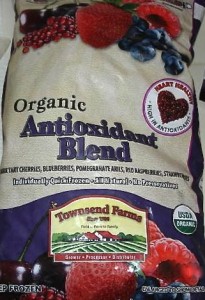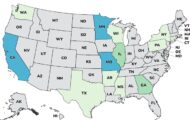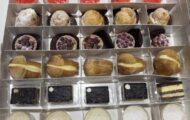Since March 31, 159 people in 10 states have been diagnosed with hepatitis A infections from eating contaminated Townsend Farms frozen berries purchased from Costco stores. Hepatitis A is a highly contagious viral infection and those who have it should stay home from work. Symptoms include mild fever, loss of appetite, nausea, vomiting, diarrhea, fatigue, dark urine, clay colored stools and jaundice. The contaminated berries were sold at other store, but only berries purchased from Costco were linked to illnesses. Following is a timeline of key dates in the outbreak investigation in 2013.
 May 31, Colorado Department of Public Health, the Centers for Disease Control and Prevention (CDC) and the U.S. Food and Drug Administration (FDA) announce an investigation of a hepatitis A outbreak linked to Townsend Farms berries sold at Costco and Harris Teeter stores. Thirty people in five states are sick.
May 31, Colorado Department of Public Health, the Centers for Disease Control and Prevention (CDC) and the U.S. Food and Drug Administration (FDA) announce an investigation of a hepatitis A outbreak linked to Townsend Farms berries sold at Costco and Harris Teeter stores. Thirty people in five states are sick.
June 1, a traceback investigation identifies pomegranate seeds from Turkey that are part of the frozen berry mix as the source of the outbreak. Test results from two people sickened in this outbreak suggest the outbreak strain of hepatitis A virus (HAV) is genotype 1B, a strain rarely seen in the Americas that circulates in North Africa and the Middle East.
June 3, the outbreak expands to include Hawaii. The case count rises to 32. Nine people are hospitalized.
June 4, Townsend Farms issues a recall for the berries. Haris Teeter issues a recall. (As of August 28 no illnesses have been linked to berries purchased at Harris Teeter stores.) The outbreak expands to include Utah. Forty nine people in seven states are sick.
June 6, the outbreak expands to include 61 people. Eleven are hospitalized.
June 7, county health departments in affected states have been administering free vaccinations. Seventy nine people in eight states are sick, 30 of them are hospitalized.
June 11, a lawsuit is filed on behalf of an Arizona man who was sickened. The suit, filed in U.S. District Court in Phoenix, names Townsend Farms and Costco as defendants.
June 12, the outbreak expands to include 99 people in eight states. Thirty eight are hospitalized.
June 17, the outbreak includes 118 in eight states. Forty seven people are hospitalized.
June 27, Woodstock organic pomegranate kernels are recalled. One hundred twenty two people are sick.
June 28, the outbreak expands to include 127 people. Fifty five are hospitalized.
June 29, the FDA announces that it will detain shipments of pomegranate seeds from Goknur Gida Maddeleri Ithalat thracat Tic (Goknur Foodstuffs Import Export Trading) of Turkey intended for import into the country. Townsend Farms expands berry recall.
July 5, the outbreak expands to include 140 people. Sixty one are hospitalized.
July 15, the FDA issues two import alerts That FDA has issued two import alerts for Goknur Foodstuffs. One for produce that contains pathogens, another for produce packed in insanitary conditions.
July 21, the outbreak expands to include 150 people. Ten of the case patients are children under 18 who had not been vaccinated.
August 4, the outbreak expands to include 158 people. Sixty nine are hospitalized.
August 16, outbreak includes 159 in 10 states. By state, the case count is as follows: Arizona (23), California (77), Colorado (28), Hawaii (8), New Hampshire (1), New Jersey (1), New Mexico (10), Nevada (6), Utah (3), and Wisconsin (2). The Wisconsin cases resulted from exposure to the contaminated product in California, the New Hampshire case was exposed during travel to Nevada, and the case reported in New Jersey was a household contact of a confirmed case from Colorado. Six of the cases are secondary cases.




